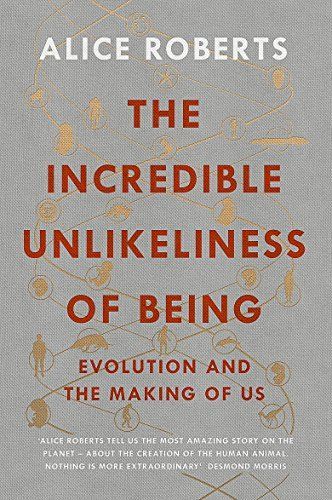
The Incredible Unlikeliness of Being: Evolution and the Making of Us
In this compulsively readable book, Dr. Alice Roberts lays out the miraculously strange way in which the human body grows from a chemical (DNA) into a living, sentient being. A longtime professor and well-known TV presenter, Dr. Roberts is also an author of unusual ability, capable of synthesizing complex ideas and packing dense scientific information into lucid, beautiful prose. Bringing together the latest scientific discoveries and drawing on interviews with scientists from around the world, Dr. Roberts illustrates that our evolution has resulted in something that is awe-inspiring yet far from perfect. Our embryonic development is a quirky mix of new and old, with strokes of genius alongside accommodated glitches and imperfections that are all inherited from distant ancestors. For instance, our development and evolutionary past explains why, as embryos, we have what look like gills, and as adults we suffer from back pain. This is a tale of discovery, about ourselves and our environment, that explores why and how we have developed as we have, looking at the development of human physiognomy through the various lenses of embryology, genetics, anatomy, evolution, and zoology. It combines the remarkable set of skills Alice Roberts possesses as a medical doctor, anatomist, osteoarchaeologist, and writer. As Richard Dawkins put it, the reader emerges from her book "entertained and with a deeper understanding of yourself."
Reviews
Pavonini@papaver